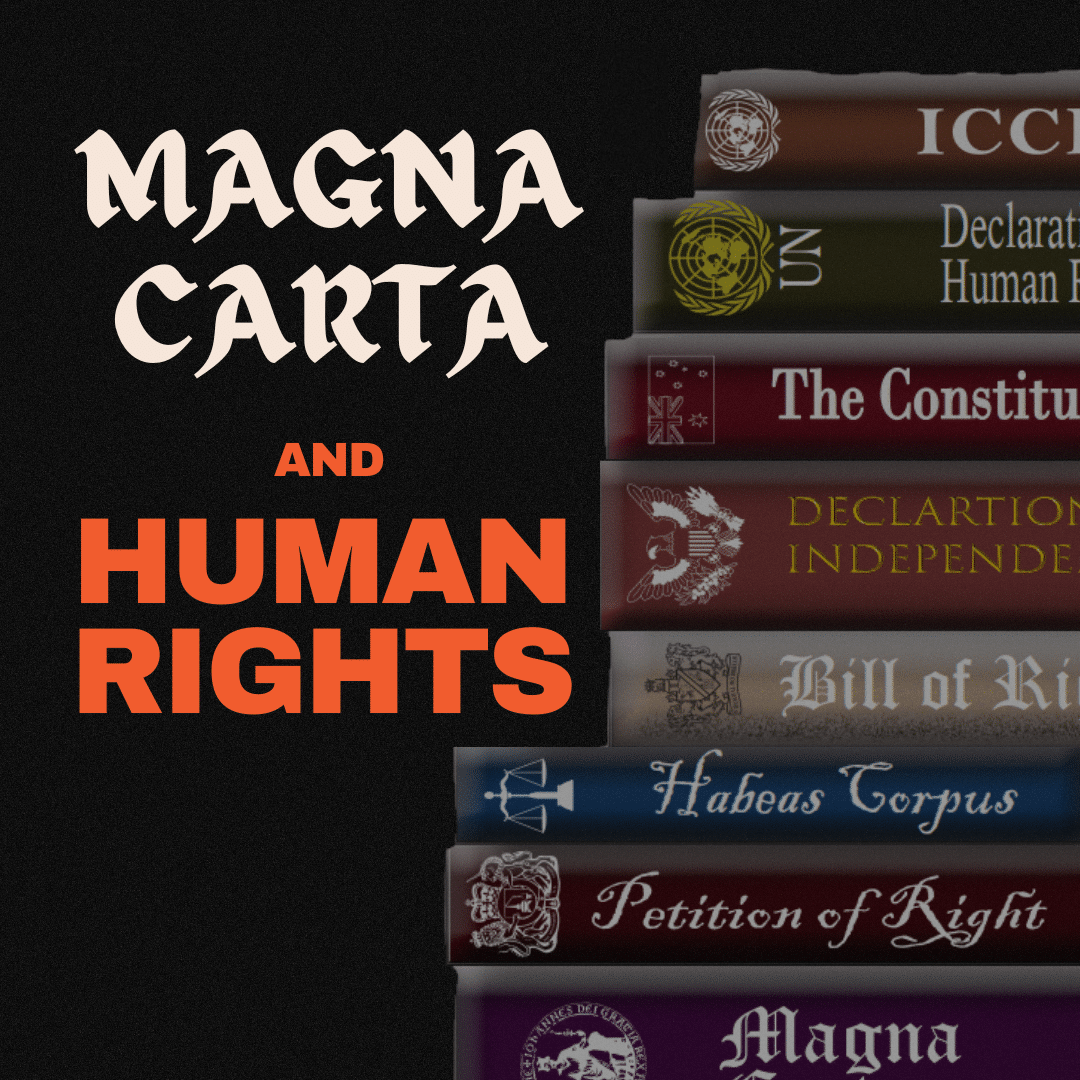Human Rights
Human Rights are protected by the Rule of Law
The Magna Carta was the basis for contemporary human rights and established the Rule of Law. The Rule of Law principles provide the foundations for the protection and enforcement of human rights, and in turn, the principles are protected with human rights by International documents, such as the UDHR, the ICCPR and the ICESCR.
“Whereas it is essential, if man is not to be compelled to have recourse, as a last resort, to rebellion against tyranny and oppression, that human rights should be protected by the rule of law…”
– Preamble of the Universal Declaration of Human Rights
Video 1: Human Rights Explainer
Human Rights and Modern Slavery
Human Rights and Artificial Intelligence
Human Rights and Freedom of Speech
Does Australia need a Human Rights Act?
The team at the Rule of Law Education Centre interviewed Lorraine Finlay, Human Rights Commissioner with the Australian Human Rights Commission about human rights in Australia. Lorraine outlined both sides of the debate and highlighted that the key issue centres around who, elected officials or unelected judges, will make the final decisions when two human rights come into conflict.
What is the relationship between the Magna Carta and Human Rights?
This resource explores the legacy of the Magna Carta and its effect on human rights documents, tracing the evolution from the Magna Carta to the Universal Declaration of Human Rights, and giving an overview of the relationship between the Magna Carta and Human Rights.
International Covenant on Civil and Political Rights (ICCPR)
Human rights are recognised and protected in Australia through federal and state laws, policies and procedures and the overarching framework of the Constitution. The ICCPR is an internationally significant treaty that serves as an influential guide for every Australian citizen.
Educational Video: Balancing Individual Right and Community Interests with Mr Sofronoff KC
Primary School Resources on Human Rights
Human rights are fundamental values that can be found in a successful democratic society. Human rights form the foundations of governments that serve to protect the people. All citizens are considered equal in the eyes of the law, have access to the law which serves communities justly and without discrimination, and forms parliaments that make the law.
World Human Rights Day is an opportunity to share with your students the importance of human rights and why they must be supported for all people across the world. These resources will help support your work in the classroom as you teach your students about the importance of supporting human rights.








